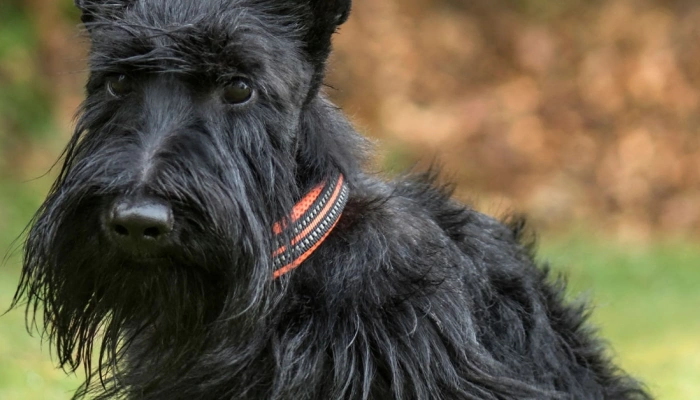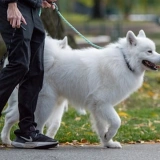Scottish Terriers are intelligent and observant, but not overly eager to please—training requires patience, consistency, and positive reinforcement. They respond best to confident handlers who respect their independent streak while setting clear boundaries. Early socialization is important to balance their natural reserve with new people or environments.
Their double coat needs regular maintenance, including brushing a few times per week and periodic hand-stripping or trimming to maintain texture. While generally clean and low-shedding, their beard may need frequent cleaning after meals. Scotties are prone to some breed-specific health issues, such as Scottie cramp and certain cancers, so routine checkups and a healthy lifestyle are key. This breed is ideal for individuals or families looking for a loyal yet self-assured companion.







